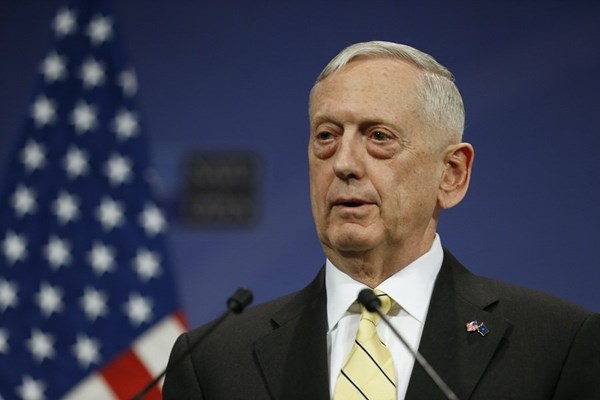US Secretary of Defense concerned about Russia’s possible interference in the referendum in Macedonia
US Defense Secretary Jim Mattis stated on September 11 that he will visit Macedonia on the eve of the Referendum on changing the name of the country that will take place on September 30. Mattis expressed his fears regarding possible interference from Moscow in the voting process in Macedonia.
In June, the Macedonian government agreed with Greek authorities to change its name to North Macedonia. The change of the country's name will allow Greece to not oppose the neighboring country’s joining NATO and the European Union.
“I am concerned about it. I think that democracies should be left alone,” Mattis said. “The kind of mischief that Russia has practiced from Estonia to the United States, from Ukraine and now to Macedonia… it's always beyond the pale, as far as I'm concerned,” Mattis told journalists.
The Defense Secretary’s visit to the Balkan Republic is scheduled for the end of this week. Mattis stressed that the USA supports citizens of Macedonia. NATO invited Skopje to start negotiations on joining the Alliance but amendments to the constitution regarding the name change should be made before this happens.
The European Union also assured that negotiations on the inclusion of the country into the European Community will start depending on the outcome of the referendum on changing the name of the Republic.
The Russian Ambassador in Macedonia criticized the Republic’s plans to join NATO, stating that the country will become a “legal target for attack” if relations between Russia and the Western military alliance deteriorate further. Macedonian nationalists also oppose changing the name of the country, including the President of Macedonia, Gjorge Ivanov.
In July, Greece expelled two Russian diplomats and prohibited another two employees of the diplomatic mission from entering the country. They are accused of inciting the population to riots and bribing officials to prevent the conclusion of an agreement with Macedonia. Moscow denied these accusations and as a response, sent home two employees of the Macedonian Embassy in Russia.
